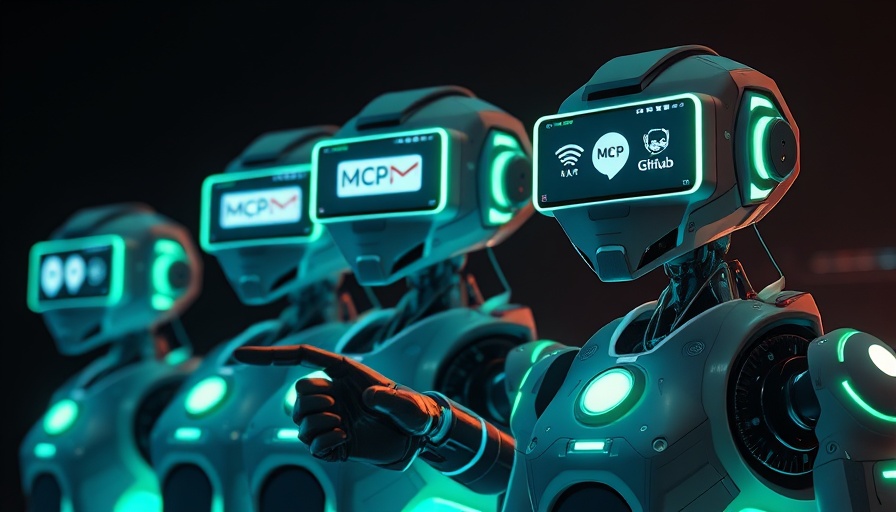
Understanding the Rise of Fast AI Agents
In recent years, the landscape of artificial intelligence has dramatically evolved. The introduction of specialized AI agents capable of executing tasks with lightning speed signals a new era in productivity and efficiency. A fascinating demonstration highlighted in the video titled Is INSANE Fast Special MCP AI Agents The Future? (I think so) showcases how these AI systems can seamlessly execute complex workflows—pushing the boundaries of what’s achievable through automation.
In Is INSANE Fast Special MCP AI Agents The Future? (I think so), the discussion dives into the advancement of AI systems, exploring key insights that sparked deeper analysis on our end.
The Mechanics Behind AI Task Execution
The demonstration focuses on an orchestrator AI that manages multiple specialized agents for different tasks. A key example involved gathering real-time Bitcoin prices and automatically pushing that data to a GitHub repository. This task, executed under a minute and twenty seconds, showcases the efficiency that AI agents can bring to business operations, enabling teams to focus more on strategic planning rather than tedious execution.
Specialization of AI Agents: Why It Matters
One significant advantage discussed in the video is the specialization of these AI agents. Each agent has its own dedicated tools, enhancing their capacity to perform effectively and reducing the likelihood of error. This separation allows for a targeted approach to different tasks, thus improving performance and scalability within AI frameworks. Imagine a world where businesses are supported by AI agents finely tuned for specific roles; this not only boosts productivity but also addresses unique organizational needs.
Real-World Implications of AI Deployment
As we delve into the implications of deploying such technology, it’s essential to understand the potential benefits and risks involved. Fast AI agents can revolutionize industries, from finance to healthcare, by enhancing operational efficiency and driving cost savings. However, as AI continues to evolve, concerns surrounding job displacement, ethical usage, and privacy remain paramount.
Looking Ahead: The Future of AI Agents
With the rapid development of AI technologies, predictions about the future of these agents suggest a more integrated role within business operations. Enhanced capabilities through memory functions mean AI can learn from previous tasks and apply that knowledge to improve future performance. This adaptive quality could lead to smarter, more intuitive systems that not only serve businesses but also understand their needs better than ever before. Incorporating feedback loops and memory storage into agent architecture represents an exciting frontier in AI's evolution—this could lead to a significant upgrade in how businesses leverage technology for strategic decisions.
Conclusion
The developments in AI agent systems illustrate a profound shift in the way technology aids productivity within our daily lives. As we embrace the power of these innovations, it’s crucial for business owners and tech enthusiasts alike to stay informed and proactive. By harnessing the capabilities of specialized fast AI agents, organizations can position themselves at the forefront of their industries, adapting to consumer needs with unprecedented speed and accuracy. If you're eager to explore these advancements further, consider testing the demo tools shared in the video and engage with the community around this innovative technology.
 Add Row
Add Row  Add
Add 




 Add Row
Add Row  Add
Add 

Write A Comment